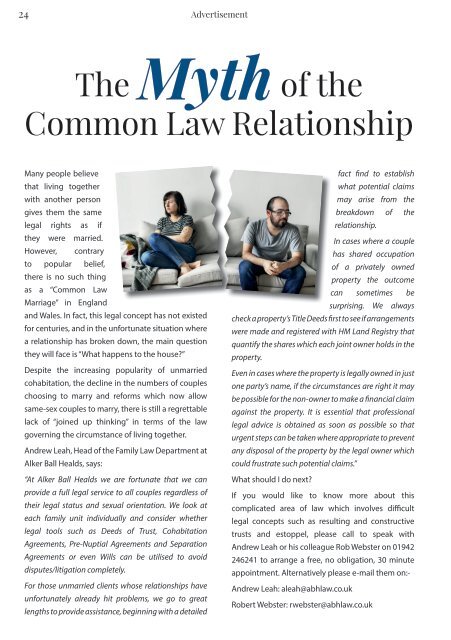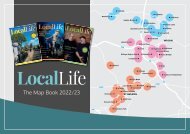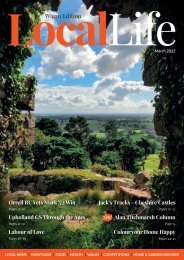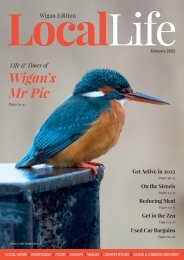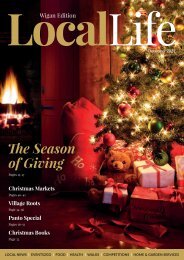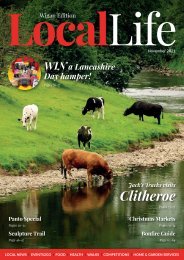Local Life - Wigan - May 2019
Wigan's FREE local lifestyle magazine.
Wigan's FREE local lifestyle magazine.
- No tags were found...
You also want an ePaper? Increase the reach of your titles
YUMPU automatically turns print PDFs into web optimized ePapers that Google loves.
24<br />
Advertisement<br />
The Myth of the<br />
Common Law Relationship<br />
Many people believe<br />
that living together<br />
with another person<br />
gives them the same<br />
legal rights as if<br />
they were married.<br />
However, contrary<br />
to popular belief,<br />
there is no such thing<br />
as a “Common Law<br />
Marriage” in England<br />
and Wales. In fact, this legal concept has not existed<br />
for centuries, and in the unfortunate situation where<br />
a relationship has broken down, the main question<br />
they will face is “What happens to the house?”<br />
Despite the increasing popularity of unmarried<br />
cohabitation, the decline in the numbers of couples<br />
choosing to marry and reforms which now allow<br />
same-sex couples to marry, there is still a regrettable<br />
lack of “joined up thinking” in terms of the law<br />
governing the circumstance of living together.<br />
Andrew Leah, Head of the Family Law Department at<br />
Alker Ball Healds, says:<br />
“At Alker Ball Healds we are fortunate that we can<br />
provide a full legal service to all couples regardless of<br />
their legal status and sexual orientation. We look at<br />
each family unit individually and consider whether<br />
legal tools such as Deeds of Trust, Cohabitation<br />
Agreements, Pre-Nuptial Agreements and Separation<br />
Agreements or even Wills can be utilised to avoid<br />
disputes/litigation completely.<br />
For those unmarried clients whose relationships have<br />
unfortunately already hit problems, we go to great<br />
lengths to provide assistance, beginning with a detailed<br />
fact find to establish<br />
what potential claims<br />
may arise from the<br />
breakdown of the<br />
relationship.<br />
In cases where a couple<br />
has shared occupation<br />
of a privately owned<br />
property the outcome<br />
can sometimes be<br />
surprising. We always<br />
check a property’s Title Deeds first to see if arrangements<br />
were made and registered with HM Land Registry that<br />
quantify the shares which each joint owner holds in the<br />
property.<br />
Even in cases where the property is legally owned in just<br />
one party’s name, if the circumstances are right it may<br />
be possible for the non-owner to make a financial claim<br />
against the property. It is essential that professional<br />
legal advice is obtained as soon as possible so that<br />
urgent steps can be taken where appropriate to prevent<br />
any disposal of the property by the legal owner which<br />
could frustrate such potential claims.”<br />
What should I do next?<br />
If you would like to know more about this<br />
complicated area of law which involves difficult<br />
legal concepts such as resulting and constructive<br />
trusts and estoppel, please call to speak with<br />
Andrew Leah or his colleague Rob Webster on 01942<br />
246241 to arrange a free, no obligation, 30 minute<br />
appointment. Alternatively please e-mail them on:-<br />
Andrew Leah: aleah@abhlaw.co.uk<br />
Robert Webster: rwebster@abhlaw.co.uk


